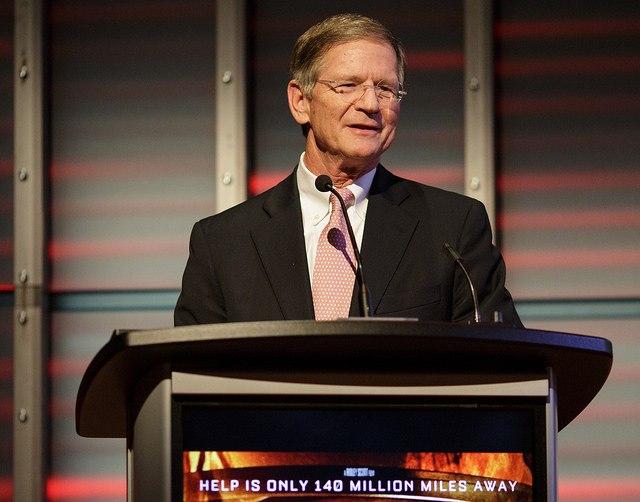
Lamar Smith, a 29-year veteran of the U.S. House of Representatives, has long been hostile to climate science. The Texas Republican, who serves as chairman of the House Science Committee, gained notoriety for his harassment of scientists at the National Oceanic and Atmospheric Administration (NOAA). Smith’s targets included a former astronaut, NOAA Administrator Kathryn Sullivan, with his insistence that the agency should be studying the weather and not climate science at all.
Earlier this year, Smith spearheaded the passage of a House bill that tightly restricts the kinds of grants the National Science Foundation chooses to fund. Climate change research is now excluded -- in his words, it does not serve the “national interest.” He also wielded an ax on NASA’s budget over the agency’s climate research. Claiming that climate change science is full of “uncertainties,” Smith became one of the loudest voices on Capitol Hill to scream that all environmental legislation is a job-killer.
His favorite tactic? Smith is quick to issue subpoenas to climate scientists, demanding every email related to climate change in the hope he can find something that fits his climate denial agenda.
Smith’s political witch hunt already ensnared the 17 state attorneys general investigating ExxonMobil. (They allege the oil giant knew about climate change decades ago, only to suppress the information.) Now, it's extending to environmental NGOs.
The Union of Concerned Scientists (UCS) is one such group from which Smith demanded documents. The fracas started on May 18, when Smith and the House Science Committee sent UCS a letter demanding all emails exchanged with the aforementioned attorneys general and other NGOs.
At issue is UCS’ role in investigating the allegations that ExxonMobil and other fossil fuel companies have distorted the American public’s understanding of climate science. According to UCS, its researchers provided attorneys general across the nation with publicly-available information that ranges from climate impacts to tactics energy companies employ to cast doubt on climate research.
ExxonMobil claims such investigations are an affront to the company’s First Amendment rights. But legal scholars, including Yale School of Law dean and professor Robert Post, conclude this is a huge stretch when the subject is fraud.
Smith is among those in Congress who are quick to defend the company, and met state justice departments’ subpoenas of ExxonMobil with a tit-for-tat response. To that end, UCS, which says it has long been transparent, is pushing back -- and hard:
“It’s beyond ironic for Chairman Smith to violate our actual free speech rights in the name of protecting ExxonMobil’s supposed right to misrepresent the work of its own scientists and deceive shareholders and the public,” Ken Kimmell, president of UCS, said in a statement.
Since Smith acceded to the leadership of the House Science Committee in 2013, he has used it as a bully pulpit to discredit climate science. Eddie Bernice Johnson, a Democrat from Texas who is also on the House Science Committee, has accused Smith of abusing power -- noting that he issued more subpoenas in his 3.5 years as chair than the committee has since it was first established in 1954.
Ironically, Smith has praised legislation such as solar tax credits in the past, and he was quick to applaud stimulus funding for electric buses during the early days of the Obama administration. But low oil prices have hurt the energy sector in Texas. So there needs to be a scapegoat, and climate science is clearly Smith's sacrificial lamb.
Meanwhile, Smith has accepted at least $600,000 in political donations from energy companies during his career, the Washington Post reported last year. Over $85,000 came into his campaign’s coffers over the past year, reports OpenSecrets. The largest individual contributor within that sector is NuStar Energy — a company which made it clear that climate-related legislation would have a negative impact on its business.
Image credit: NASA/Flickr

Leon Kaye has written for 3p since 2010 and become executive editor in 2018. His previous work includes writing for the Guardian as well as other online and print publications. In addition, he's worked in sales executive roles within technology and financial research companies, as well as for a public relations firm, for which he consulted with one of the globe’s leading sustainability initiatives. Currently living in Central California, he’s traveled to 70-plus countries and has lived and worked in South Korea, the United Arab Emirates and Uruguay.
Leon’s an alum of Fresno State, the University of Maryland, Baltimore County and the University of Southern California's Marshall Business School. He enjoys traveling abroad as well as exploring California’s Central Coast and the Sierra Nevadas.














